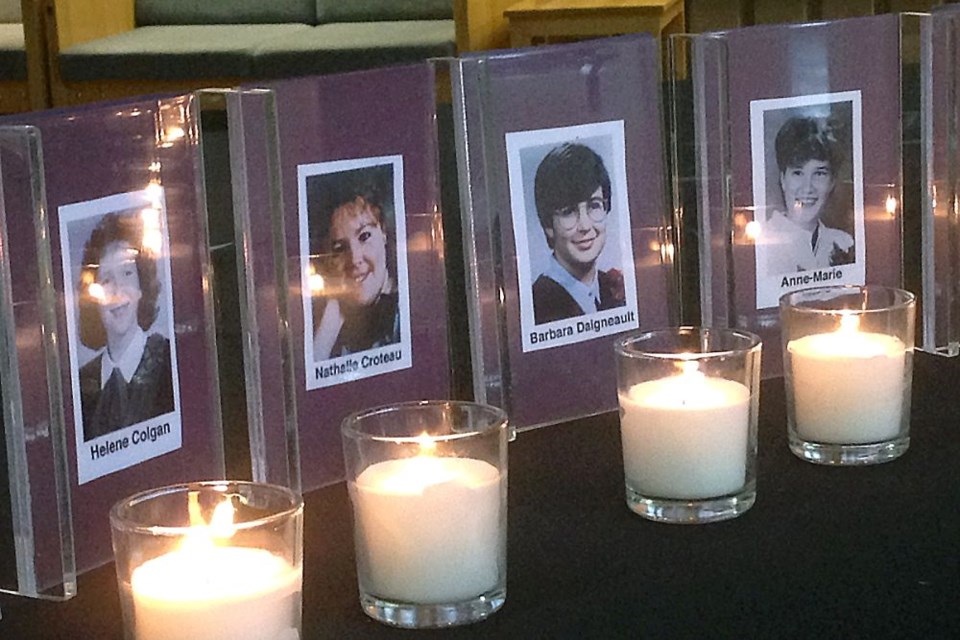Stephanie Simko says the world needs a lot of love right now.
Twenty-six years after a gunman walked into Montreal’s Ecole Polytechnique and slaughtered 14 women because of their gender, the co-ordinator of Lakehead University’ Student Union’s gender issues centre said violence against women is a violation of their human rights and must be stopped.
On Monday Simko hosted a ceremony marking the anniversary of the Montreal shooting, saying some progress has made in the ensuing quarter of a century, but there’s still plenty of work left to do.
“Even after 26 years, women still face obstacles, financially, within housing, within relationships, within power dynamics within society,” Simko said.
“So while there has been progress, there are still a number of things that need to move forward.”
While Canada is a relatively progressive country – the need for an inquiry into more than 1,000 murdered and missing indigenous women notwithstanding – there are plenty of places around the world where no progress has been made.
“We live in a relatively developed country, but there are still a number of things we can do around the world to help racialized and marginalized people achieve more freedom and truly to stop living in fear of violence,” Simko said.
It’s important, she added, to mark anniversaries like the Montreal shooting, but be aware that the problem is much broader in scope.
“Violence does not just occur on a day-to-day thing. This is part of our history, this is an ongoing, systemic issue that only … remembering the mistakes of the past can we continue to move forward and change things.
The numbers are staggering.
Sixty-seven per cent of Canadians have known a woman who has been sexually or physically abused. Every six days a woman is killed by her current or former partner and 60 per cent of all Canadian woman experience some form of violence.
Monday’s ceremony included a short biography of each of the murdered Montreal women, followed by a candle-lighting in each victim’s name.
Lucy Fowler, the victims service co-ordinator with the Metis Nation of Ontario, said it’s important for the community to come together to protest violence against women, but also two-spirited persons and the transgendered community.
“It’s our responsibility to heal ourselves from the inside, but it’s also the responsibility of the federal government to ensure that justice is served for our women and our two-spirit and transgender people,” Fowler said.
Both Fowler and Simko are optimistic with news out of Ottawa that the murdered and missing indigenous women inquiry is going to occur in the very near future. Fowler said she’s encouraged that
Minister of Indigenous and Northern Affairs Carolyn Bennett said the inquiry will be led by indigenous women themselves.
“But I’m cautiously optimistic, just because of the traditions in this country. I hope the minister and the new prime minister prove me wrong,” Fowler said.
